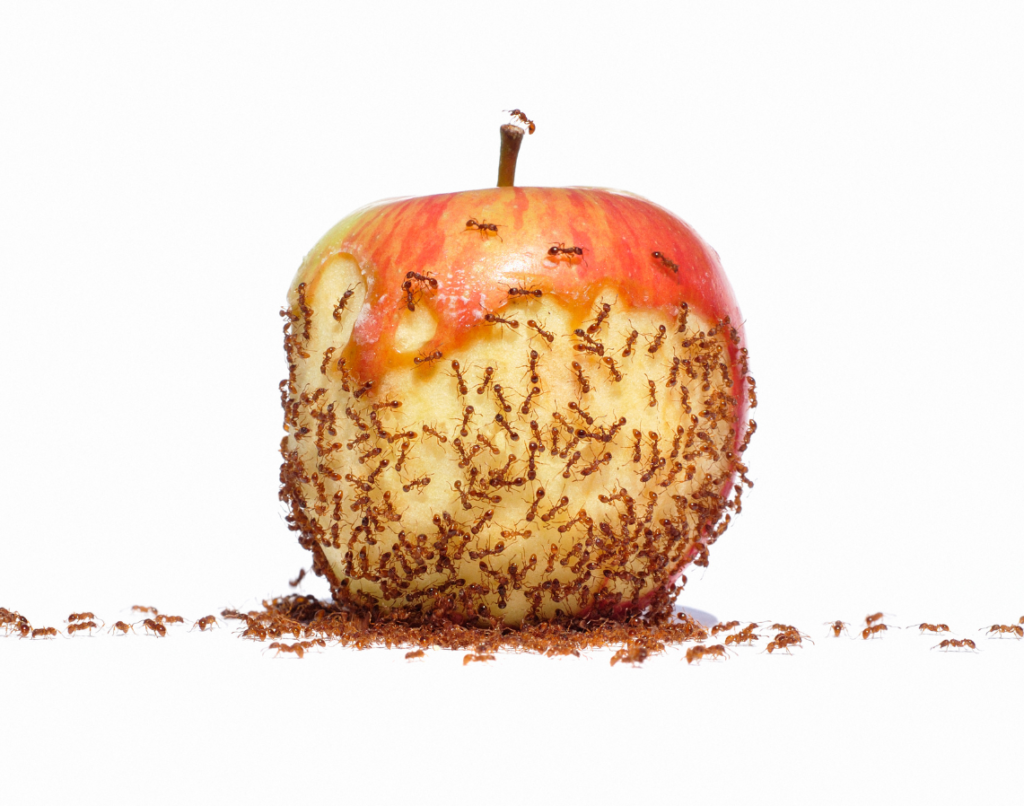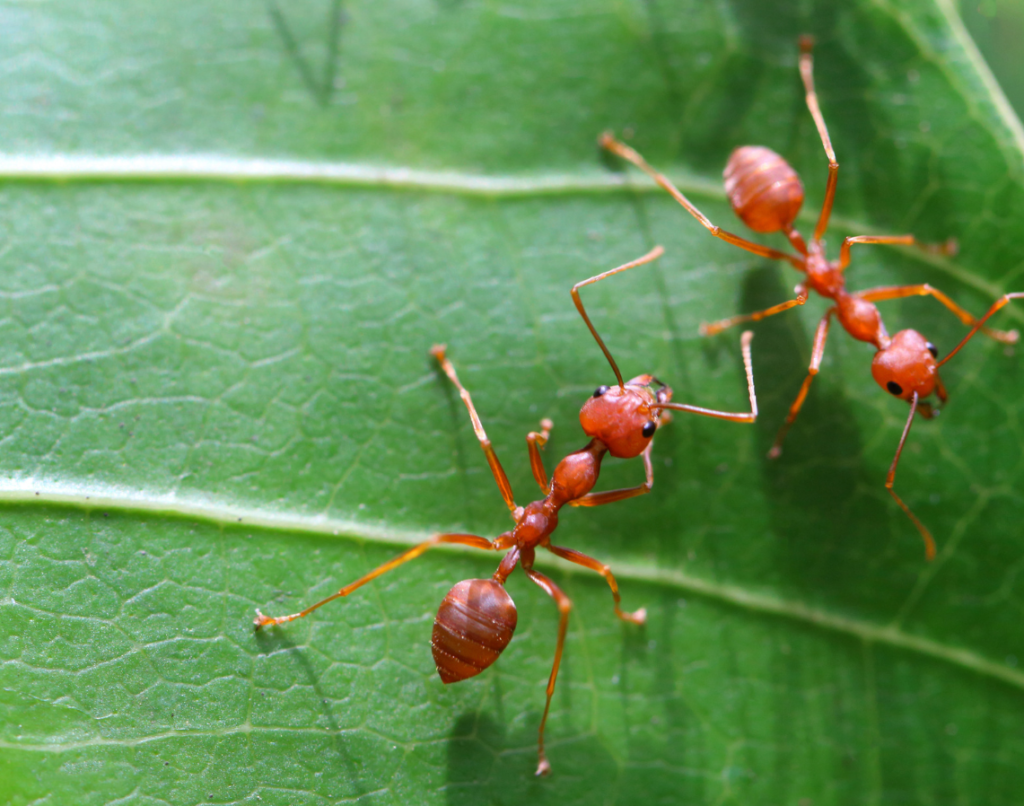Pharaoh Ant Control Services
Pharaoh ants are a common household pest that can quickly become a nuisance. These tiny light brown ants are known for their ability to infest multiple areas of a home. At Express Pest Control, we understand the frustration and stress that comes with dealing with a Pharaoh ant infestation. That’s why we offer comprehensive Pharaoh ant control services to help eliminate these pests and prevent future invasions. Our team of experienced professionals is dedicated to providing fast and effective solutions to keep your home pest free.
What are Pharaoh Ants?
Pharaoh ants, also known as sugar ants are a common household pest that can quickly become a nuisance. These tiny ants are only about 1/16th of an inch long. They are difficult to spot with the naked eye.
Pharaoh ants have a distinctive appearance with their pale yellow bodies and darker brown abdomens. They have a single node between their thorax and abdomen which sets them apart from other ant species that may have multiple nodes. Another characteristic feature is their antenna, which has 12 segments and ends in a three segmented club.

Pharaoh Ant’s Reproduction
Pharaoh ants may have up to 300,000 workers with multiple queens nesting in wall and cabinet voids, behind baseboards, behind refrigerator insulation, inside hollow curtain rods, or in the folds of sheets, clothes, or paper. They follow plumbing and wiring and have been found in light switches and electrical outlets. In colder climates they prefer to nest in heated buildings. Colonies are very mobile; workers, along with larvae, pupae, and even a few queens, may move to new locations if disturbed or if colony becomes too large. New nests can be formed by “budding” with as few as 5 workers, 10 preadults, and one queen migrating from the original colony. Development time (egg to adult) for workers is about 38 days at 80 degrees F. Workers live about 9-10 weeks, with only up to 10% out foraging at any given time. Queens live about 4-12 months, and males die about 3-5 weeks after mating.

What Do They Eat?
Pharaoh ants have a diverse diet that includes both sweet and protein rich foods. These tiny pests are opportunistic feeders and can consume a wide range of items commonly found in homes. Their preference for sweet foods is where the nickname “sugar ants” comes from.
Pharaoh ants are attracted to sugary substances such as syrup, honey, and fruits. They will also seek out sugary food crumbs, like those left behind by spills or improper food storage. Pharaoh ants also require protein to survive and thrive. They will feed on proteins found in meat, dairy products, and even dead insects. This means that they can infest pantries, kitchens, and even garbage areas.
Health Issues
In some areas, this ant has become a major pest of residences, food plants, factories, office buildings, apartments, and hospitals. Infestations in hospitals have become a chronic problem in Europe and the United States where burn victims and newborns are subjected to increased risk because the Pharaoh ant can transmit over a dozen pathogenic pathogens. Pharaoh ants have been observed seeking moisture from the mouths of sleeping infants and from in-use bottles. Don’t compromise your health – take action against Pharaoh ants today.
Controlling and Preventing Pharaoh Ants
Control of Pharaoh ants is difficult, due to their nesting in inaccessible areas. Treatment must be thorough and complete at all nesting sites, as well as the foraging area. Thus, treatment must include walls, ceilings, floor voids, and electrical wall outlets. Baits are now the preferred method of control for Pharaoh ants and several baits (insecticides) are labelled for indoor ant control. A Pharaoh Ant infestation of a multifamily building requires treatment of the entire building to control the infestation. Ants nesting on the outside may be controlled by also using a perimeter barrier treatment.

Baits cannot be placed in just any location and be expected to work. Pharaoh ant trails and both food & water must be located for proper placement of baits and effective control. Non-repellent baits (such as boric acid, hydramethylon or sulfonamide) should be used, as repellent baits can worsen the situation by causing the colony to fracture.
While these proactive measures can help deter Pharaoh ants, it’s also important to seek professional pest control services. At Express Pest Control, our team of experienced professionals has the knowledge and expertise to effectively eliminate Pharaoh ants from your home. We use safe and efficient methods to eradicate these pests and prevent future infestations.
Don’t let Pharaoh ants take over your home. Take control of the situation today by implementing preventive measures and contacting Express Pest Control for reliable and effective Pharaoh ant control services.
